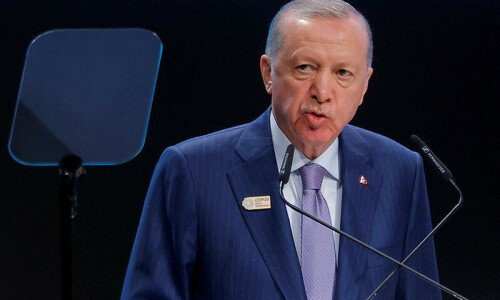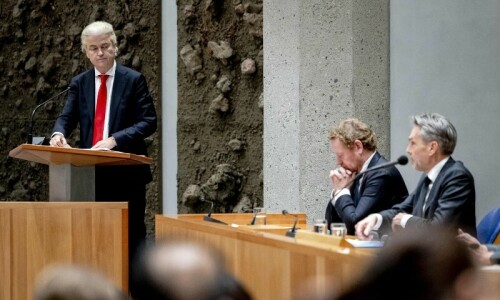ISLAMABAD: Nutritional behaviours and practices for food-insecure communities in the Gwadar and Lasbela coastal districts of Balochistan will be improved under a project signed by the World Food Programme (WFP) of the United Nations and the provincial government.
The WFP and Balochistan government on Wednesday signed the second phase of Gwadar-Lasbela Livelihoods Support Project (GLLSP-II) as these areas are highly exposed to climate shocks, resulting in lower productivity in agriculture, livestock and fisheries, WFP announced in Islamabad.
GLLSP-II is an extension of the Gwadar-Lasbela Livelihoods Support Project’s previous phase, conducted in the same two districts. It adopts an integrated approach by the Rome-based agencies — FAO, IFAD and WFP — to promote climate-resilient agriculture and livestock practices and sustainable fisheries management.
The project agreement was signed in Islamabad by Rathi Palakrishnan, Acting WFP Country Director, and Rehmat Dashti, Project Director of Planning and Development Department of Balochistan.
Gwadar-Lasbela livelihoods project to promote climate-resilient agriculture, livestock practices and sustainable fisheries management
“The WFP is deeply concerned about the worsening nutrition situation in Pakistan, including in several districts of Balochistan. The partnership will allow WFP to provide critical support to the provincial government in its efforts to raise nutrition awareness among the most vulnerable communities to improve their nutrition and overall well-being,” said Rathi Palakrishnan.
Speaking after signing the project, Rehman Dashti said: “The partnership between the Balochistan government and the WFP will help us achieve our joint nutrition targets.”
He appreciated WFP’s efforts in striving for long-term solutions to the challenge of malnutrition in Pakistan.
The project funded by the International Fund for Agricultural Development will contribute to the prevention of malnutrition through behavioural change interventions on nutrition, building on a nationwide existing programme supported by WFP, known as the Benazir Nashonuma Programme.
As part of the broader Benazir Income Support Programme (BISP), the Benazir Nashonuma programme specifically targets pregnant and breastfeeding women, as well as children under the age of two. It operates through 484 facilitation centres in 156 districts across Pakistan, including in Gwadar and Lasbela. The GLLSP-II project will also support these beneficiaries and use the ten operational facilitation centres — six in Lasbela and four in Gwadar — within government health facilities.
Child malnutrition in Pakistan’s flood-affected areas continues to rise sharply. A survey conducted in 15 districts in Sindh, Khyber-Pakhtunkhwa and Balochistan showed nearly one-third of children under the age of two are suffering from moderate acute malnutrition (MAM), and 14 per cent from severe acute malnutrition (SAM).
WFP is supporting the treatment of MAM cases among children, as well as pregnant and breastfeeding women and girls, through a targeted supplementary feeding programme in 23 high prevalence districts in Sindh and Balochistan.
Published in Dawn, May 18th, 2023











































Dear visitor, the comments section is undergoing an overhaul and will return soon.